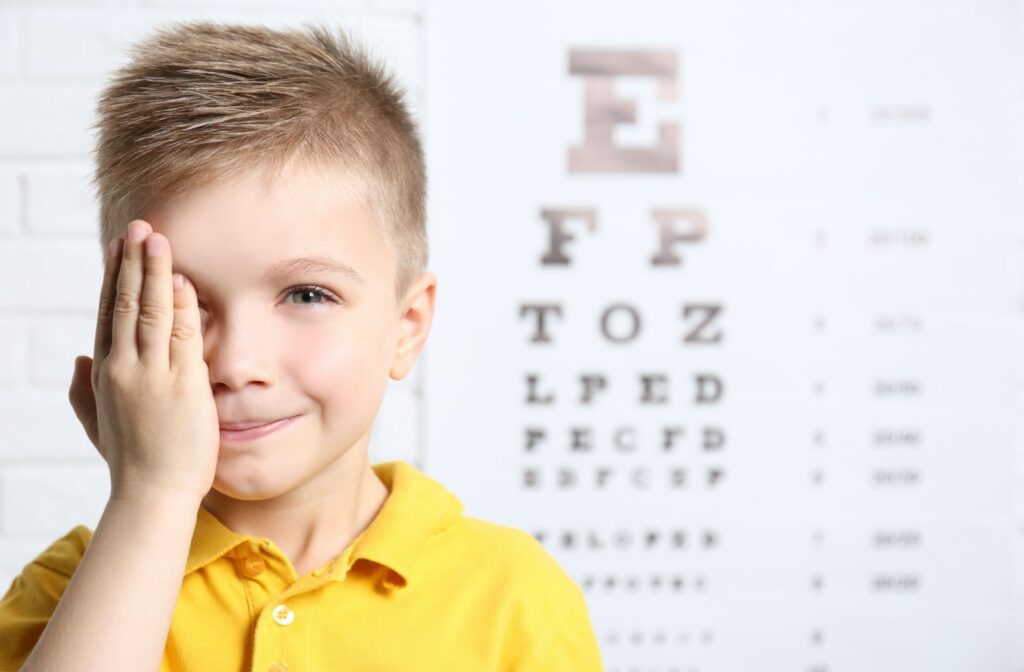Featured
Table of Contents

Normal eye exams are essential for preserving good vision and detecting prospective eye wellness problems early. However, the regularity of these exams can vary substantially based on a person's age, lifestyle, and overall health and wellness. Comprehending the recommended schedule for eye tests can help make sure that people of any ages get ideal treatment and surveillance for their eye health and wellness.
Infants and Toddlers (0-2 Years)
For infants and kids, eye tests are critical for detecting any type of possible vision problems early. The American Academy of Ophthalmology advises that a child's first eye examination should occur at around 6 months of age. Throughout this first browse through, the eye care specialist will certainly analyze the kid's visual growth and look for any kind of noticeable eye problems.Following this first test, it is suggested that children have an additional eye examination at age 3. This see will focus on evaluating the youngster's general aesthetic function, including eye positioning and the capability to track things. If no issues are found, the following exam should be set up prior to the youngster begins college, usually around age five or 6.
School-Aged Children (6-18 Years)
Normal eye examinations should be scheduled every one to two years as soon as children reach school age. Vision is essential for discovering and advancement, and many colleges carry out vision screenings. These screenings do not change a detailed eye test by an eye care professional.For kids associated with tasks or sporting activities requiring significant visual emphasis, annual eye examinations may be a good idea. Additionally, if a youngster displays signs of vision issues-- such as problem reading, squinting, or frequent frustrations-- a check out to the eye doctor must be scheduled immediately.
Youthful Adults (19-39 Years)
Young person commonly have less vision modifications than older age teams, yet regular eye tests continue to be vital. The basic referral is to schedule an eye exam every two years throughout this duration. However, individuals with particular threat variables-- such as a family members history of eye disease, diabetes, or those that use contact lenses-- must consider annual eye exams.Furthermore, those who invest significant time on electronic devices might experience digital eye strain. If signs such as dryness, tiredness, or obscured vision take place, it might be smart to see an eye treatment expert sooner.
Grownups (40-64 Years)
As individuals get in middle age, the possibility of establishing vision troubles rises. Grownups aged 40 to 64 must schedule eye tests every one to 2 years. This age team may begin to experience presbyopia, a natural age-related problem that makes it testing to focus on close things. Eye examinations can also assist find various other common age-related problems such as glaucoma, cataracts, and macular deterioration.If individuals in this age team have threat elements like hypertension or diabetes mellitus, they may require even more frequent assessments to check their eye wellness very closely.
Senior Citizens (65 Years and Older)
For seniors, routine eye exams come to be also extra important. The American Optometric Association recommends that people matured 65 and older have an eye exam at least as soon as a year.Final thought.
Understanding the ideal schedule for eye tests based on age is essential for maintaining ideal eye health and wellness throughout life. By sticking to these guidelines and consulting with an eye care expert, individuals can take positive steps towards protecting their vision and general health.Table of Contents
Latest Posts
Host Your Perfect Occasion: Place Rental Options for each Event
Published Mar 26, 25
1 min read
Just How Can Customers Tailor Furnishings to Suit Their Home Design?
Published Jan 27, 25
0 min read
Exactly How Can Consumers Personalize Furniture to Match Their Home Décor?
Published Jan 22, 25
0 min read
More
Latest Posts
Host Your Perfect Occasion: Place Rental Options for each Event
Published Mar 26, 25
1 min read
Just How Can Customers Tailor Furnishings to Suit Their Home Design?
Published Jan 27, 25
0 min read
Exactly How Can Consumers Personalize Furniture to Match Their Home Décor?
Published Jan 22, 25
0 min read